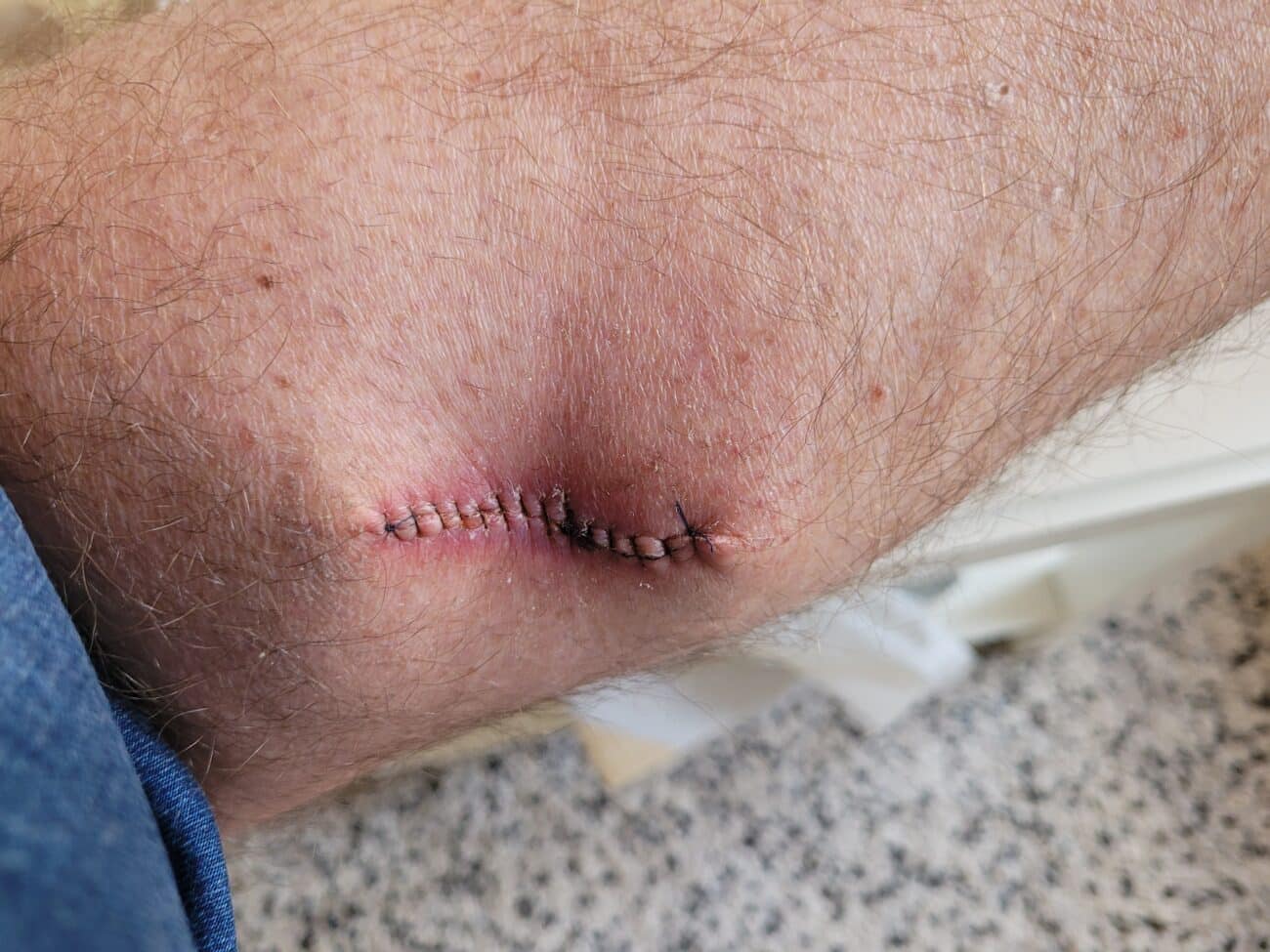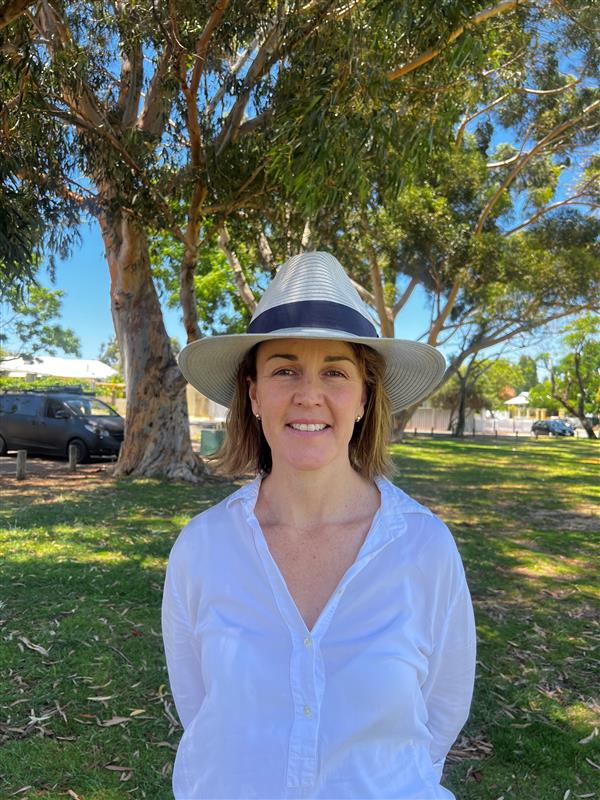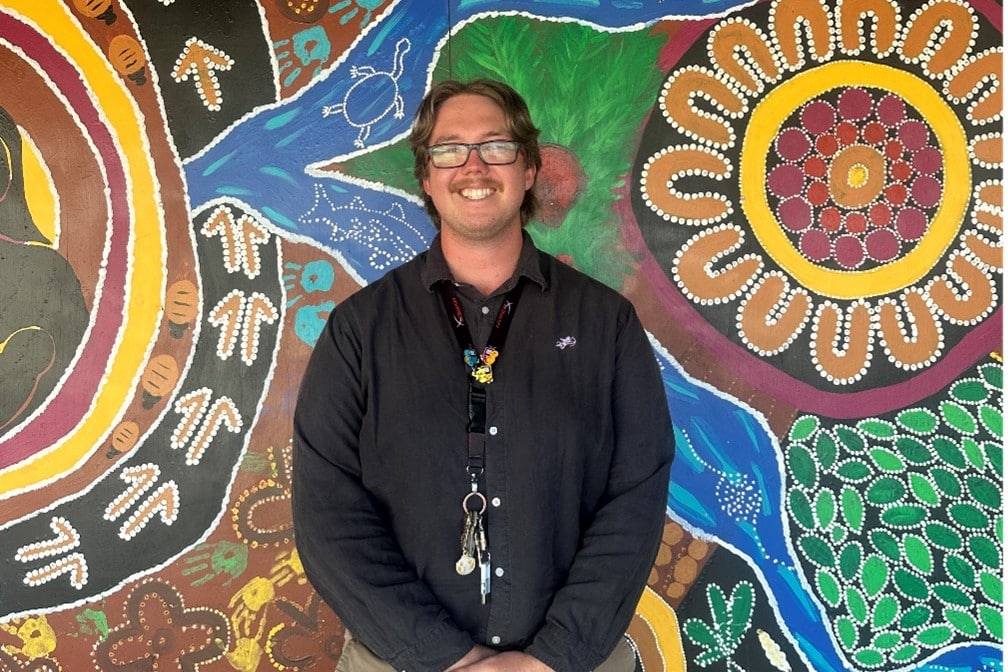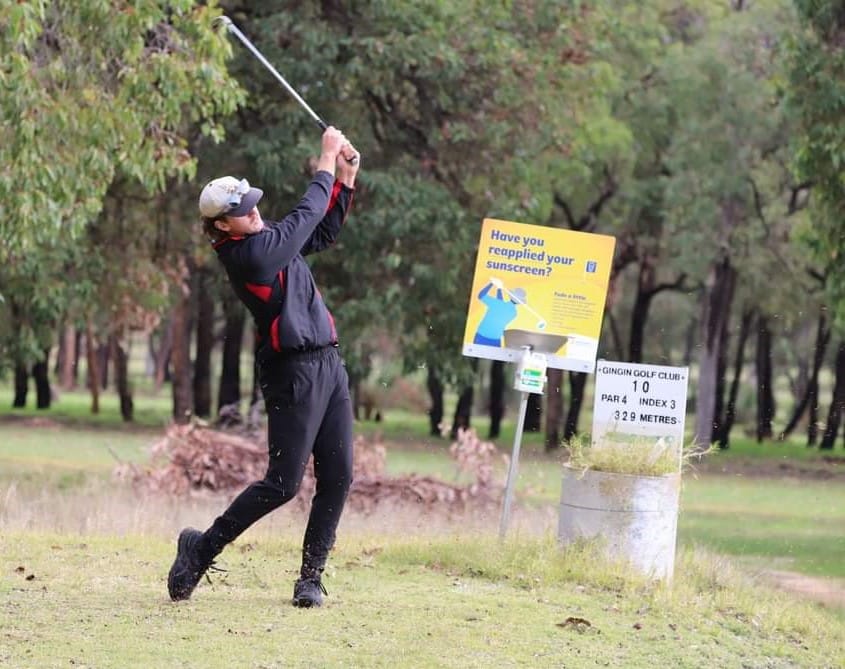Nicole’s journey began in 2021 when she was diagnosed with advanced melanoma, an aggressive form of skin cancer. Her case…
WA cancer boss shares his story after shock melanoma diagnosis
Cancer Council WA CEO, Ashley Reid, is urging people to be vigilant with their self-skin checks, after a suspicious mole on his right calf turned out to be early-stage melanoma.
Mr Reid said hearing the words ‘you have cancer’ came as an enormous shock.
“As CEO of Cancer Council WA, I talk about cancer and statistics every day,” Mr Reid said.
“I talk about WA and Queensland having the highest rates of skin cancer in the world and how skin cancer (melanoma, basal cell carcinoma and squamous cell carcinoma combined) is the most common, and the most costly to treat cancer type. Every day 36 West Australians hear the words ‘you have cancer’, so it’s a real shift in perspective when you realise you are now one of those statistics.
“It was definitely a shock to hear the news and there was also fear. It’s natural to worry if it had spread and whether I was in for worse news.”
Mr Reid said his cancer scare came just before Christmas last year.
“I had noticed a mole on my right calf which had been there for a while, and while it was pretty small, I had noticed it had changed over time,” he said.
“On December 15 last year I visited my GP who thought the mole looked a bit suspect, so he did a biopsy which was then sent off for testing.
“Three days later I received the news that it was early-stage melanoma. Coincidently this was all happening during the launch of the new national skin campaign led by Cancer Council.
“Just before Christmas I underwent urgent surgery which involved an incision in my right calf down to the muscle which required 14 stitches.
“The wait to hear if it had been fully removed was pretty tough, and there were delays in testing due to the Christmas break, so it was an anxious time.
“But then I received a call on December 30, exactly two weeks after my first GP appointment, to say they had all the margins and it had not spread.
“What a relief it was to hear those words.
“I wanted to share my story as there’s still so much mythology and taboo about cancer, but also to talk about the importance in investing in cancer research.
“Back in the 30s and 40s a cancer diagnosis was often fatal. But we’ve seen huge gains in survival rates especially for melanoma as a result of increased symptom awareness (early detection) and improvements in treatment all through huge investments in research.
“All of Cancer Council’s investment in local world-class research is donor funded.
“In WA, Cancer Council has invested more than $55 million dollars since 1963 on more than 1100 cancer research projects. We just simply could not find ways to reduce the incidence and impact of cancer without that support from the community.
“I now have the benefit of all of that incredible research investment.
“I grew up in Perth in the 70s and apart from a bit of zinc across my nose there was little else I did to be SunSmart. There was limited knowledge about the damage from overexposure to UV and we had no messaging around broad-brimmed hats, shade or sunscreen.
“Culturally it was a time when tanning was seen as healthy, and people would often refer to a tan as that ‘holiday glow’.
“Fast forward 40 years, and between me and my partner, Rachel, we have four teenage daughters. Their age group can think that tanning is desirable but I have now become the poster boy at home to say that tanning is not cool.
“I think it’s really important to talk about it and that’s why I am happy to share my story.”



